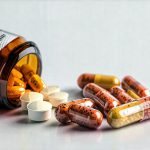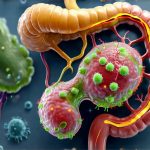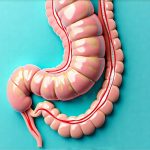Antibiotics represent one of the most significant advancements in modern medicine, dramatically reducing morbidity and mortality associated with bacterial infections. However, their widespread use isn’t without consequence. While designed to target harmful bacteria, antibiotics often disrupt the delicate balance of microorganisms residing within our digestive system – collectively known as the gut microbiota. This disruption can have far-reaching effects on human health, extending beyond the immediate infection being treated and potentially influencing a wide range of physiological processes.
The composition of the gut microbiota is incredibly complex, involving trillions of bacteria, fungi, viruses, and other microorganisms. A healthy gut microbiome is essential for proper digestion, nutrient absorption, immune system development, and even mental wellbeing. Understanding how antibiotics impact this intricate ecosystem is crucial for mitigating potential negative effects and promoting overall health.
Antibiotics & Microbiota Disruption
Antibiotics, by their very nature, are not discerning enough to differentiate between beneficial and harmful bacteria. Their broad-spectrum activity often leads to collateral damage, killing or suppressing populations of commensal gut microbes alongside the targeted pathogens. This indiscriminate effect is a primary driver of dysbiosis – an imbalance in the composition and function of the gut microbiota. The extent of disruption varies depending on several factors including the type of antibiotic used, dosage, duration of treatment, and individual patient characteristics.
The consequences of this disruption aren’t always immediate or obvious. They can range from mild gastrointestinal upset to more serious long-term health concerns. Furthermore, the gut microbiota is remarkably resilient, but repeated or prolonged antibiotic exposure can significantly impair its ability to recover fully.
Long-Term Consequences & Recovery
The alteration of the gut microbiome by antibiotics isn’t merely a temporary inconvenience; it can have lasting repercussions on human health. The diversity and function of microbial communities are crucial for maintaining physiological homeostasis. Reduced diversity, often seen after antibiotic use, has been linked to increased susceptibility to infections, inflammatory bowel disease, allergies, obesity, and even mental health disorders. The specific long-term effects depend heavily on the individual’s initial microbiome composition, genetics, diet, and lifestyle factors.
Impact on Immune Function
A significant portion of our immune system is intricately connected to the gut microbiota. Commensal bacteria play a vital role in “training” the immune system, helping it distinguish between harmless and harmful antigens. Antibiotic-induced dysbiosis can compromise this training process, potentially leading to an impaired immune response and increased vulnerability to infections. Specifically, reduced populations of certain bacterial species can diminish the production of short-chain fatty acids (SCFAs), which are key regulators of immune cell function.
Altered Metabolic Processes
The gut microbiota actively participates in metabolic processes, including the fermentation of dietary fibers into SCFAs like butyrate, acetate, and propionate. These SCFAs serve as an energy source for colonocytes, regulate inflammation, and influence glucose metabolism. Antibiotic use can disrupt these fermentation pathways, reducing SCFA production and potentially contributing to metabolic disorders. Furthermore, changes in microbial composition can affect the absorption of nutrients and the bioavailability of essential vitamins.
Potential for Pathogen Colonization
When antibiotics eliminate beneficial bacteria, they create an ecological niche that opportunistic pathogens can readily colonize. This is particularly concerning with antibiotic-resistant organisms like Clostridioides difficile (formerly Clostridium difficile). C. difficile infection (CDI) is a severe complication frequently occurring after antibiotic use, leading to debilitating diarrhea and even life-threatening colitis. The disruption of the gut microbiota allows C. difficile spores to germinate and proliferate, causing disease.
The recovery of the gut microbiota following antibiotic treatment is a complex process that isn’t fully understood. Several strategies are being explored to accelerate this restoration, including dietary interventions (such as increasing fiber intake), probiotic supplementation, and fecal microbiota transplantation (FMT). Dietary changes focused on prebiotic-rich foods can nourish remaining beneficial bacteria and encourage their growth. Probiotics, containing live microorganisms, may help repopulate the gut, although their effectiveness varies depending on the strain and individual. FMT, which involves transferring stool from a healthy donor to a recipient, represents a more aggressive approach aimed at rapidly restoring microbial diversity. However, FMT is generally reserved for recurrent CDI cases due to its potential risks and complexities. Ultimately, minimizing unnecessary antibiotic use remains the most effective way to protect the gut microbiome and preserve its crucial role in maintaining overall health.


















